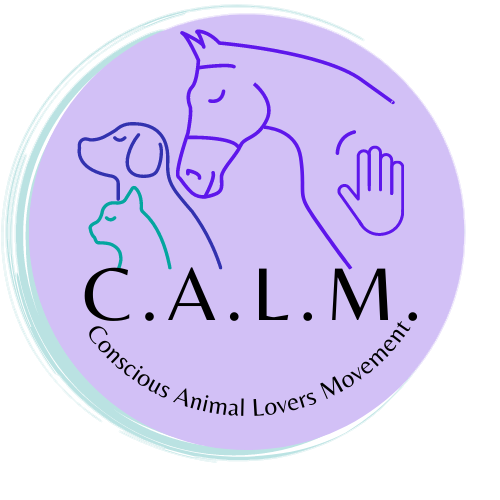Allen M. Schoen, D.V.M., M.S.
One of the saddest days for someone who is blessed with a wonderful german shepherd as a companion and friend is when their mature buddy is diagnosed with degenerative myelopathy.
This disease is predominantly found in german shepherds and appears to have a hereditary component. Occasionally the disease has also been diagnosed in Belgium shepherds and Old English Sheepdogs. It is so sad because it is a progressive disease where they slowly, but steadily lose control of their hindlegs until they are completely paralyzed. They lose control of their bowels and urine and have to eventually be put to sleep, even though their head, front end and mental attitude is fine. Until recently there has been no successful treatment for this disease. It has been considered somewhat similar to multiple sclerosis in people. In other words, it appears to be a problem in the immune system, where the immune system recognizes parts of the nervous system as foreign and attacks the spinal cord leading to progressive deterioration of the spinal cord and paralysis. Unfortunately, I have seen too many wonderful german shepherds slowly, but steadily deteriorate with this dreadful disease. In my holistic practice, I have more success than with conventional medicine, using a combination of acupuncture, nutritional supplements and homeopathic remedies which appears to slow down the progression of the disease and increase strength in the hind end, but it is only successful in maybe 30% of the dogs and is still only temporary. The good news is that an innovative, progressive, renowned neurologist at the University of Florida veterinary school, Dr. Roger Clemmons, has developed an integrative approach to this disease that appears to be helping many more dogs!
Before we go into the exact supplements, one must make sure that this is the correct diagnosis. It is not uncommon for a dog to be referred to me with a diagnosis of degenerative myelopathy and it actually is another neurologic disease that is more successfully treated. Arthritis, spondylosis, disk disease, spinal cord tumors as well as vascular accidents may initially appear to present with somewhat similar signs. If you are suspicious that your dog may have degenerative myelopathy, have a consult with a veterinary neurologist or internist. There are some tests including x-rays, drug trials, cat scans and others that can be used to rule out other diseases.
If all other diseases have been ruled out and it appears that your dog does seem to have this, we now have a comprehensive approach to this disease including diet, nutritional supplements, herbs and acupuncture that appear to help these dogs significantly. For a comprehensive detailed discussion of this approach you can contact Dr. Roger Clemmons web page at http://neuro.vetmed.ufl.edu/. He is a true pioneer in this field and we owe a great debt of gratitude to his innovative spirit.
So let us take a look at my approach and his approach and see how they fit together. The base foundation for all my approaches is a good, well balanced homemade natural diet in order to minimize exposure to potential artificial chemicals, preservatives and oxidants that may possibly be harmful to your dog. My basic diet can be found in my book “Love, Miracles and Animal Healing”, by Simon & Schuster. Other good diets can be found in Helen McKinnon’s selfpublished book on cooking for your dog, “It’s for your Dog Cookbook” and Dr. Pitcairns classic, “Natural Health for Your Dog & Cat” by Rodale Press. Dr. Clemmons also has his specific diet on his web page. His goal with his diet is to provide excellent quality of ingredients along with the protein source coming from soybean curd (tofu). However, some dogs may have an allergy to soy or it may cause gas and bloating. If your dog has these problems, tofu should be avoided. He also recommends using extra virgin olive oil has a source of essential fatty acids. This is an excellent source. However, some research suggests that evening primrose oil, black currant and borage oil may even be a more appropriate source of essential fatty acids in immunocompromised animals. These are more expensive and more difficult to find sometimes. Dr. Clemmons suggests two cloves of raw garlic freshly crushed. Garlic has many wonderful properties including being an excellent antibacteria and antiinflammatory. Over 1200 scientific research articles have been published on the medical benefits of garlic! Many of those old wives tales had a great deal of truth in them! However, one must also be careful that garlic may cause digestive upset including gas and heartburn in some dogs. They may also have sudden cravings for italian food! (just kidding!).
Dr. Clemmons has extrapolated many of his other suggestions for degenerative myelopathy (DM) from Dr. Andy Weil’s recommended program for human patients with multiple sclerosis, a human disease that appears similar in its pathologic model to degenerative myelopathy. Dr. Weil, the world renowned naturally oriented physician has these suggestions on his web page which is also, like this column, on time warners pathfinder internet magazine. You can find his natural suggestions for people wtih multiple sclerosis on Dr. Weils web page: http://cgi.pathfinder.com. or search for Dr. Andy Weil.
I have always suggested regular consistent aerobic exercise for DM dogs in order to keep their muscles strong and increase oxygen to all organs and muscles. Dr. Clemmons likes walking and swimming as his preferred exercise programs. Where swimming may help maintain mluscle strength, swimming helps maintain muscle tone. If your dog exercises regularly, maintain the program ideally at 20 minutes twice a day and a longer walk once or twice a week. If they are not used to this, begin with five to ten minute walks and gradually build up. Do not overdue exercise, if your dog is exhausted and begins to get weaker and goes down. This is not productive. Try swimming them daily or three times a week if they cannot walk that long.
Vitamin supplementation is essential for DM dogs. A multiple B vitamin supplement should be beneficial for maintenance of nerve health. For normal dogs I suggest 50 mg.’s of a good quality multi-B supplement. For DM dogs, Dr. Clemmons suggests a higher dose of 100 mg.’s.which is a good idea. He also suggests one tablespoon of nutritional yeast in powder or flake form as a good source of B-complex vitamins, trace minerals and some protein. This is a great idea unless your dog is allergic to yeast or has a tendency towards candidiasis, an overgrowth of yeast that can manifest as disease in the gastrointestinal tract, ears and skin . Antioxidants such as Vitamin E, Vitamin C and selenium are essential in the treatment of this disease. Vitamin E has potent antiinflammatory and antioxidant properties. In DM there appears to be a problem with absorption of Vitamin E. Dr. Clemmons recommends to give 400 I.U.’s of Vitamin E to all shepherds under 2 years of age, 800 I.U.’s for all over two years and 2000 I.U.’s for dogs with DM. Vitamin C helps potentiate Vitamin E. Dr. Clemmons reccomends 1000 mg.’s of Vitamin C twice a day for dogs with DM, unless that causes diarrhea. If so, cut back to a dose that does not cause diarrhea. I prefer certain types of vitamin C over others, magnesium ascorbate, sodium ascorbate and ester C, an esterified version of C may be absorbed better from the gastrointestinal tract and may be less irritating. Selenium, a trace mineral, also helps potentiate Vitamin E. I suggest 100 micrograms of selenium once per day for DM.
Other nutritional supplements recommended include 1000 mg. of fish oil in capsules or 2 sardines per day. Lecithin at a dose of 1-2 tsps is also good for nerves. Herbs that may be beneficial include Ginkgo biloba (1 capsule two times per day), ginseng for male dogs (one capsule once or twice a day) and grape fruit seed extract (1 capusle per day). For additional suggestions, check Dr. Clemmons web page. This offers wonderful new options to keep our dogs healthier and happier!
If you would like a consultation with one of my Veterinary associates in the greater New York or Connecticut region, you can go to the practice part of my website, call the appropriate office and make an appointment with one of them to see how we can help your kindred spirit.
No article can replace the services of a trained veterinarian. This article is not intended to encourage treatment of illness, disease, or other medical problems by the layman. Any application of the recommendations set forth in this article is solely at the reader’s discretion and risk. You should consult a veterinarian concerning any veterinary medical or surgical problem. If a veterinarian is caring for your pet, for any condition, he or she can advise you about information described in this article.

